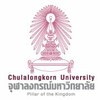The GSP semester
Academic Focus
Due to the relative freedom of choosing classes (see below), there is no predetermined regional or theoretical focus while studying at JNU, but students can determine their area of specialisation themselves.
Course offer
The semester at JNU has a very interdisciplinary orientation: students can choose their courses (minimum of 4) themselves. The only requirement is that at least two of their courses need to be from the CSSS (Centre for the Study of Social Sciences). The other classes can be chosen from any other centres (including language, computer science etc.).
The head of GSP at JNU, Prof. Vivek Kumar, usually offers one course specifically desigend for GSP students: Modernization and Development - A South Asian Perspective.
Here are some further examples of courses students have attended in the past: Sociology of knowledge, Sociology of urban life in India, International conflicts and cooperation, Women and society in India, Modern Indian social thought, Statistics in social sciences, National security and international relations, Governance of cultural industries, Themes in popular culture, Energy and environmental issues, Religion and society in India, Sociology of medicine, Conflict and peace in West Asia and North Africa.
At JNU you can choose from a variety of different methodological courses. You can even take courses focused entirely on quantitative and statistical approaches if this is what you are interested in.
Course format
All the classes that GSP-students can choose from are also open to all other JNU students. The usual group size in optional courses ranges from 40 to 50 students. Compulsory classes may range from 80 to 90 students.
Examinations
Every course awards 4 credits. Two of these are gained through end-of-term examinations. The other two credits are received either for a lager term paper, or through the combination of a tutorial and mid-term examination. The end-of-term examinations usually take place in May.
Academic culture
The general language of instruction at Jawaharlal Nehru University is English. Languages classes (e.g. Hindi) are also available for interested students.
The relationship between lecturers and students in general is a friendly one. Lecturers can be reached via email or approached in person.
Living and studying
All facilities (including canteen, library, health centre, shopping centre, salons etc.) are available on the campus itself. Student dorms are also located directly on the campus, but students are also free to choose other accommodation outside the campus if they want to (which will most likely be more expensive).
Visa & immigration
Students will receive their invitation letters via email from the coordinators several months before the start of the term. With these invitation letters students can start their visa process at the Indian embassy. For applying for the visa students might also need a confirmation that they payed the tuition fees. This confirmation can be issued by the GSP coordinators at the University of Freiburg.
Students' voices
To give you a better idea of the experience at Jawaharlal Nehru University, you can read what our current and former students think about the time they spent there:
“JNU, for me, was an invaluable experience just for how special life on campus is: It's not often that I've had the opportunity to live and study in a forest in the middle of a metropole. I found JNU super interesting for its politicized and active culture and the intercultural learning experience it offered me. Beyond academic life, I found Delhi and India generally very enjoyable for its history, culture and food. I think JNU is a great choice if you're ready to do work, if you're somewhat flexible, okay with heat, and if you're into great food.”
German student, Batch 2022





